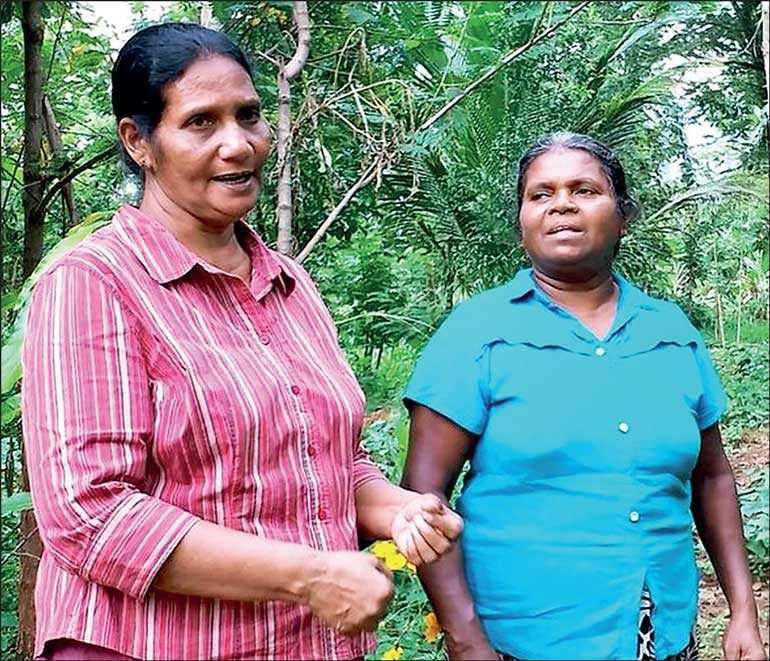Thursday Feb 19, 2026
Thursday Feb 19, 2026
Wednesday, 12 December 2018 00:00 - - {{hitsCtrl.values.hits}}

By Meera Srinivasan
The Hindu: For Chandrani Mendis, the political crisis gripping Sri Lanka since October 26 has had a specific cost — her pension for November.
“After my husband died, I had been receiving Rs. 250 a month as an allowance, but they stopped it last month,” said the 60-year-old, seated in her modest home in Wellawaya, Moneragala District, located in the Uva Province.
As the country’s political unrest persists amid battles in Parliament and the courts, governance has taken a severe beating, with no legitimate administration in place for weeks. About 250 km away from Colombo, people feel the crisis intimately, in the abrupt halt to financial assistance, subsidies and children’s free school uniforms.
A Rajapaksa stronghold
Home to some 450,000 people, Moneragala is among Sri Lanka’s poorest districts and part of former President Mahinda Rajapaksa’s stronghold in the island’s Sinhala-majority south. His new party made huge gains here when it swept the country’s local polls in February.
“Even after this crisis, my friend says that he [Rajapaksa] ought to be worshipped. I told her ‘fine, light a lamp and worship him then’,” Mendis said, laughing.
For supporters, Rajapaksa is the “strong leader” who ended the country’s civil war. More so in places like Moneragala, where scores of young men joined the Army during the war to combat poverty. However, despite his appeal, some like Mendis are sceptical of Rajapaksa’s recent bid to come back to power, after President Maithripala Sirisena appointed him Prime Minister in place of incumbent Ranil Wickremesinghe seven weeks ago. “You can’t suddenly make someone the PM like that.”
Not that the Sirisena-Wickremesinghe administration gave them much to look forward to. “They did very little to bring down costs of essentials. There is a lot of talk about the [2015 Central Bank] bond scam, I don’t know what exactly happened. But the fact is they did not do anything for the people,” said Mendis, who grows vegetables for a living.
While the district may have welcomed a “change” in the next poll, not all are convinced that “change” entails “difference”. “Everybody is after power. Even in Parliament, they are talking about who should form government, not what all this means to ordinary people like us,” said Mendis. I.H. Ratnaseeli, also a farmer, expressed a similar view. “Whether the government changes legally or illegally, high costs of living don’t change. Everything from medicines to essentials are so costly,” she said.
Decades-long neglect
Their emphasis on living costs and commodity prices is not incidental. The lush-green surroundings, gleaming after a recent spell of rain, belie Moneragala’s story of decades-long marginalisation and neglect.
Beginning in the 1980s, several thousand farmers lost huge plots of land to multinational companies that set up operations here in a recently liberalised economy. That is how the resource-rich area was dragged to the bottom and became one of the country’s poorest districts, according to K.P. Somalatha, President of the Uva Wellassa Farmer Women’s Organisation.
“From the 1980s, farmers lost their lands and ended up working in these big farms as labourers. Except that what they grew was not for them to eat. It was mainly for the export market,” she said.
Even the Uma Oya irrigation and hydropower project, which Rajapaksa initiated, services his home district Hambantota more than it does Moneragala, she pointed out. People’s poverty, in her view, had political value for leaders. “If we stop being dependent on them, then how will they build patronage networks for votes” she asked.
“As long as people are poor and helpless, they will be forced to worship leaders for the crumbs they throw. Leaders will thrive on this culture of dependence,” according to Ajith Agalakada, local politician from the Janatha Vimukthi Peramuna (JVP).
For the district to get out of the poverty trap, factories that add value to local production, for local consumption, are key. “Otherwise people will be left at the mercy of leaders like Rajapaksa, who wants to be king and the people to be subjects, not citizens.”